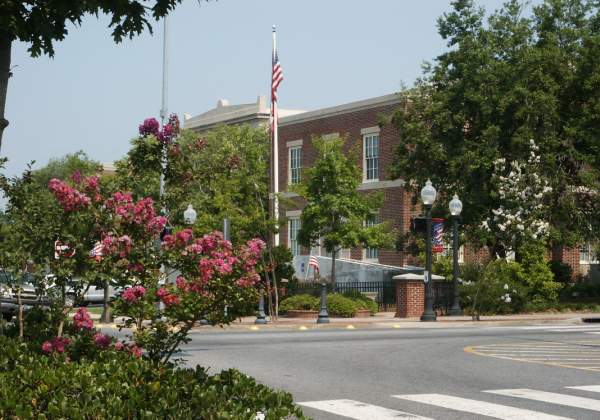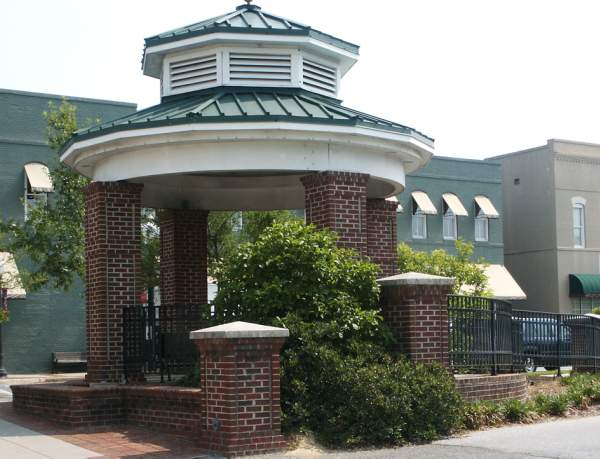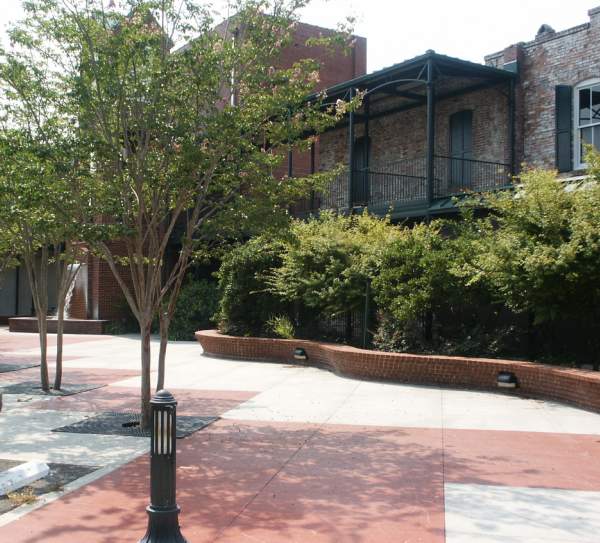



Welcome Home
Douglas is the seat of Coffee County in southeast Georgia and home to Coffee Regional Medical Center. Rooted in history, the city continues to grow and prosper as one of the state’s most progressive economic centers.
Established in 1854, Coffee County was named after soldier, State Legislator and Congressman General John E. Coffee. In 1858, Douglas was mapped on 50 acres of land donated by J. S. Pearson. the city takes its name from U.S. Senator Stephen A. Douglas, who lost the 1860 Presidential election to Abraham Lincoln. The county’s development was initially driven by agriculture, particularly cotton farming, which flourished in the fertile lands. The railroad’s arrival in the late 19th century significantly boosted the local economy, facilitating trade and attracting new residents. The county has a rich heritage, with several historic sites and buildings that reflect its past, including the Coffee County Historical Society, which preserves and shares local history.
Culture
Coffee County boasts a vibrant cultural scene influenced by its Southern roots. The community hosts various events and festivals throughout the year, such as the Wings & Things Festival and the Gopher Tortoise Festival, which celebrate local arts, crafts, and food. The region has a strong emphasis on music and arts, with opportunities for local artists to showcase their work. The Martin Centre is a historic live music venue in the heart of downtown that boasts both local and national artists, drawing in fans from across the Southeast into Coffee County.
Demographics
As of the latest census data, Coffee County has a population of approximately 43,000 residents. The community is characterized by a diverse demographic, with a mix of ethnicities and cultures contributing to its unique identity. The median age is around 36 years, and the county has a balanced distribution of families, young professionals, and retirees. Educational opportunities are provided through various public and private schools, as well as South Georgia State College and Wiregrass Georgia Technical College, which serve as a resource for higher education.
For more detailed information, residents and prospective newcomers can refer to resources such as the Coffee County Historical Society and the U.S. Census Bureau. Coffee County, Georgia’s demographic data can be accessed through the U.S. Census Bureau’s website. [U.S. Census Bureau – Coffee County, Georgia]
Local Attractions
Coffee County offers a range of local attractions that highlight its natural beauty and cultural heritage. Residents and visitors can enjoy:
- Downtown Douglas
- A vibrant area featuring unique shops, restaurants, and historical buildings.
- General Coffee State Park
- A beautiful park offering hiking trails, camping, and picnicking opportunities amidst scenic landscapes. It’s a great spot for family outings and outdoor activities. Cabin rentals make a unique lodging experience as well!
- The Martin Centre
- Heritage Station Museum
- City of Douglas Parks & Recreation Facilities
- Several Local City Parks
- Douglas Golf & Country Club
- Nearby Southeast Attractions include:
- Okefenokee Swamp
- Coastal Georgia, including Jekyll Island & the Golden Isles
- Atlantic Coast of North Florida (Amelia Island, Jacksonville Beach)
- Gulf Coast of Florida
- Ichetucknee Springs State Park
- Ocmulgee Mounds National Historic Park
Quality of Life
Living in Coffee County offers significant financial advantages compared to larger cities in Georgia. With a lower cost of living, residents can enjoy a comfortable lifestyle while benefiting from a close-knit community atmosphere.
Cost of Living Comparison
- Coffee County, Georgia
- Overall Cost of Living Index: Approximately 86.1 (based on a national average of 100)
- Housing: Lower than the national average, with median home prices around $150,000.
- Utilities, Groceries, and Healthcare: Generally lower than the national average, contributing to an affordable lifestyle.
- Atlanta, Georgia
- Overall Cost of Living Index: Approximately 103.6
- Housing: Median home prices are around $400,000, significantly higher than Coffee County.
- Utilities, Groceries, and Healthcare: Typically higher than in Coffee County.
- Savannah, Georgia
- Overall Cost of Living Index: Approximately 91.0
- Housing: Median home prices are around $250,000, which is still higher than Coffee County.
- Utilities, Groceries, and Healthcare: Also higher than in Coffee County.
- Columbus, Georgia
- Overall Cost of Living Index: Approximately 86.2
- Housing: Median home prices are about $180,000, comparable but slightly higher than Coffee County.
- Utilities, Groceries, and Healthcare: Similar but generally a bit higher than Coffee County.
Data Sources for cost of living comparison:
– BestPlaces.net: Provides cost of living comparisons, including housing, utilities, and overall cost index. [BestPlaces Cost of Living Comparison]
– Numbeo: Offers user-contributed data on cost of living, housing prices, and quality of life. [Numbeo Cost of Living Index]
– U.S. Census Bureau: For demographic and housing statistics. [U.S. Census Bureau]
Local Employment Landscape
Coffee County boasts a diverse employment landscape characterized by a mix of industries providing various job opportunities. The primary sectors contributing to the local economy include:
- Agriculture: Agriculture remains a cornerstone of Coffee County’s economy, with significant contributions from cotton, peanuts, and poultry farming. This sector supports direct employment and stimulates related industries such as processing and distribution.
- Healthcare: The healthcare sector is a major employer, with Coffee Regional Medical Center and various clinics and physician practices offering numerous jobs in medical services, administration, and support roles.
- Manufacturing: The manufacturing industry plays a vital role in providing stable employment. Local facilities produce goods such as airplane parts, insulated wire, chemicals, cargo trailers, mobile homes, building materials, pallets, and much more. Manufacturing is a large contributor to Coffee County’s economic growth.
- Distribution: Coffee County’s strategic location along major transportation routes enhances its distribution capabilities. Several logistics and distribution centers operate in the area, facilitating the movement of goods and providing employment opportunities in warehousing, transportation, and supply chain management.
- Retail and Services: The area has a variety of retail establishments (both locally owned and national chains) and service-oriented businesses offering positions in sales, management, and customer service. This sector is essential for meeting the community’s needs and supporting its economy.
- Education: With public and private educational institutions, including South Georgia State College and Wiregrass Georgia Technical College, the education sector not only provides top-notch education opportunities but also provides employment opportunities for teachers, administrators, and support staff.
Overall, Coffee County offers a balanced job market with opportunities across several industries, making it an attractive place for individuals seeking employment in a friendly and supportive community.
For More Information
City of Douglas offers a virtual tour of the city and continually updated information for visitors and citizens. The Douglas-Coffee County Chamber of Commerce provides information on business and economic development.